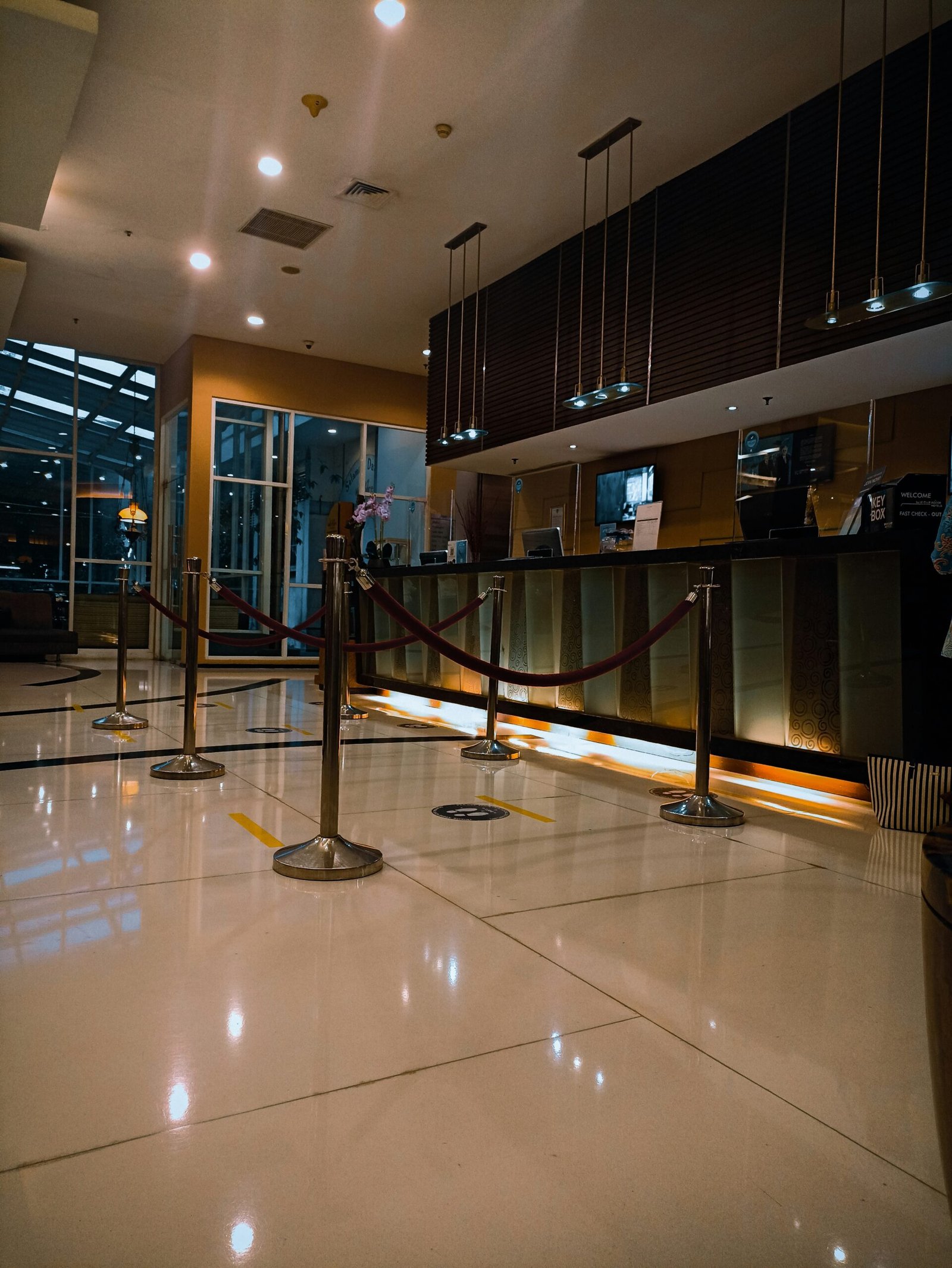Introduction to Attendee Satisfaction
Attendee satisfaction is a crucial metric within the hospitality industry, representing the degree to which guests’ expectations and needs are met during their experience. In an increasingly competitive market, understanding and enhancing attendee satisfaction is vital not only for cultivating repeat business but also for fostering long-term brand loyalty. Satisfied attendees are more likely to return for future services and to recommend those services to others, effectively contributing to a company’s reputation and market position.
The realization of the importance of attendee satisfaction stems from the industry’s reliance on service quality, personal interactions, and ambiance. These factors collectively create memorable experiences that can significantly influence a guest’s inclination to return or refer others. Consequently, hospitality businesses that prioritize attendee satisfaction are often rewarded with a steadier clientele and increased revenue. On the contrary, neglecting this aspect can lead to a damaging cycle of negative reviews and dwindling patronage.
To explore this concept further, a comprehensive survey was conducted focusing on various aspects of attendee satisfaction in hospitality services. The primary objective of the survey was to gauge guest perceptions regarding their experiences and to identify key areas for improvement. Essential questions addressed in the survey included dimensions of service quality, customer engagement, facility conditions, and overall experience ratings. By analyzing the responses, businesses can ascertain specific strengths and weaknesses within their offerings, allowing them to adapt their strategies accordingly.
In essence, the importance of understanding attendee satisfaction cannot be overstated. It serves as a foundational pillar for achieving success in the hospitality sector. Through the lens of the survey findings, organizations are equipped to make informed decisions that align with guest expectations, subsequently enhancing their service delivery and engagement capabilities.
Methodology of the Survey
The survey conducted to assess attendee satisfaction in hospitality services employed a structured approach aimed at gathering comprehensive data. The target audience consisted of individuals who have recently participated in various hospitality events, such as conferences, exhibitions, and social gatherings. This focus ensures that insights are drawn from a population that actively engages with such services, providing relevant feedback that can significantly influence service improvement.
To achieve a representative sample, a stratified sampling technique was utilized, which involved segmenting the population based on key demographics such as age, gender, and event type. This approach helped in obtaining a diverse range of perspectives, enhancing the robustness of the findings. A total of 1,500 responses were collected to facilitate a thorough analysis, which ensured that trends across different demographics could be accurately identified.
Data collection was executed through an online survey platform, which allowed participants to provide feedback conveniently. The survey included a blend of closed-ended and open-ended questions designed to capture both quantitative and qualitative data. Key metrics measured included overall satisfaction, service quality, amenities, staff responsiveness, and the likelihood of recommending the event to others. These metrics were selected based on prior research in the field, ensuring they align with established indicators of attendee satisfaction in hospitality contexts.
The survey was conducted over a two-month period, allowing sufficient time for data collection while also keeping the responses timely and relevant. Upon completion, statistical analysis techniques were applied to evaluate the data, ensuring both reliability and validity. This involved using software tools to perform descriptive statistics, frequency analysis, and correlation assessments, allowing for a nuanced understanding of the factors that influence attendee satisfaction in hospitality services.
Key Findings and Insights
The analysis of the survey data reveals several critical factors that significantly influence attendee satisfaction within hospitality services. One of the standout findings indicates that service quality emerged as the most pivotal aspect, correlating strongly with overall satisfaction levels reported by guests. Approximately 75% of respondents rated service quality as ‘excellent’ or ‘very good’, emphasizing the importance of attentive and responsive staff in enhancing the guest experience.
Another notable factor was the role of amenities offered by hospitality providers. The survey indicated that guests who rated the amenities, such as fitness facilities, dining options, and recreational activities, as satisfactory were more likely to report higher levels of overall contentment. Nearly 65% of attendees appreciated the variety of on-site amenities, which they found to significantly contribute to their overall experience. This implies that hospitality services that invest in diverse and high-quality amenities can expect a positive impact on attendee satisfaction ratings.
Staff interactions also played a crucial role in shaping guests’ experiences. Survey results highlighted that personalized customer service, along with friendly and knowledgeable staff, was essential for fostering a welcoming environment. More than 70% of attendees acknowledged that warm and effective interactions with the staff made them feel valued and positively influenced their perception of the entire establishment.
Furthermore, statistical analysis identified interesting trends, particularly regarding the age and demographic backgrounds of respondents. Younger attendees, in particular, exhibited a gradual shift towards valuing experiential offerings and the quality of social interactions during their stays, as opposed to traditional metrics of satisfaction. This points to a potential shift in service delivery models tailored to evolving attendee expectations within the hospitality sector.
Collectively, these insights underline the multifaceted nature of attendee satisfaction within hospitality services, indicating that service quality, amenities, and staff interactions collectively shape guests’ perceptions and experiences. More comprehensive understanding of these factors could enable providers to refine their offerings and elevate overall guest satisfaction significantly.
Recommendations for Enhancing Satisfaction
Enhancing attendee satisfaction within the hospitality sector requires a multi-faceted approach that examines various aspects of service delivery and guest experience. Based on survey findings, the following recommendations are crucial for hospitality businesses aiming to improve overall satisfaction and foster loyalty among attendees.
Firstly, focusing on service quality is paramount. Training staff to provide exceptional customer service should be a key priority. Comprehensive training programs that emphasize communication skills, problem-solving abilities, and emotional intelligence can help staff deliver memorable experiences. Empowering employees to make decisions and resolve issues promptly can also lead to increased attendee satisfaction. Understanding that guests appreciate personalized service can encourage staff to engage actively and attentively with attendees.
Secondly, improving facilities and amenities is essential for ensuring a comfortable stay. Regular maintenance checks and upgrades of rooms, public areas, and recreational facilities can significantly impact attendee perceptions. Investing in technology, like high-speed internet access and smart room controls, enhances convenience and aligns with the expectations of modern guests. Additionally, creating inviting communal spaces that foster social interactions can enrich the attendee experience.
Moreover, fostering memorable experiences goes beyond basic service offerings. Hospitality businesses should consider organizing unique events, workshops, or local experiences that resonate with attendees. Collaborating with local artisans or cultural institutions can create special packages that highlight regional attractions, further enhancing the overall guest experience.
Finally, implementing continuous feedback mechanisms is vital. Encouraging attendees to share their insights through surveys or feedback forms allows businesses to adapt and meet changing preferences. By analyzing feedback, hospitality providers can identify trends and areas for improvement continuously, ensuring that they remain responsive to attendee needs and expectations. This dynamic approach not only enhances satisfaction but also strengthens loyalty, ultimately benefiting the business in the long run.








